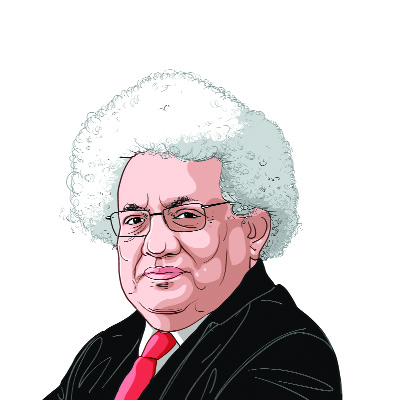Opinion Gandhi Nehru Zindabad
It is a day for hypocrisy and hyperbole. Gandhi Jayanti on October 2 brings out the worst among us.
It is a day for hypocrisy and hyperbole. Gandhi Jayanti on October 2 brings out the worst among us. We remember Gandhi on two days,his birth and his death anniversary. At other time,he smiles at us from currency notes whose main use is for black money corrupting our politics. Who spins khadi today?
But he remains perhaps the most potent anti-political force in India today. He,along with his principal disciple and exemplar Jayaprakash Narayan,still move crowds. Anna Hazare has just shown how in the 21st century,despite his many detractors,he could move young crowds throughout India,and not just the urban middle classes as they were dismissively called by the government.
The appeal of Gandhiji and of his disciples like JP is essentially anti-parliamentarian. Gandhiji would not have liked the Constitution as it was. His idea that India should be a collection of seven lakh self governing villages is both romantic and anarchist.
It is romantic because he treated villages as some ideal egalitarian republics whereas they are really cesspools of tradition,hierarchy and oppression. Any khap panchayat would prove that. Dalits and many OBCs also knew that villages were prisons from where they should escape to towns where they stood a better chance of emancipation. Ambedkar knew this and Jawaharlal Nehru agreed with him on this. This is why they was opposed to the idea of village republics. This is why they chose a western style elective parliamentary democracy.
Yet,what we now see is that even a democratically elected parliamentary system does not meet the aspirations of many people. Legitimacy of the elected MPs has been eroded by their reputation for corruption and passing the buck in presence of demonstrable failure of control. It is at such times that we crave for the one person who can solve all our problems. In America,they speak of a Man on a White Horse. Gandhiji gave us the more powerful image of an emaciated saint fasting to cure the ills of the world.
This is all the same a profoundly anti-democratic ideology. It distrusts the electorate who elect the many parliamentarians but believes the people in some mystical way can put their trust in that saint who will give us solutions. This is very much the way Gandhiji ran the independence struggle through the Congress. He was the strong man who single-handedly made the crucial decisions,be it Chauri Chaura or Quit India or the dismissal of Subhash Chandra Bose from his second term as president. The rest of the Congress had democratic practices except for its one leader who was not even a four anna member of the Party. Independent India rejected the Saint Dictator model.
The one anniversary we are somehow not celebrating is that of Nehru. Not Jawaharlal but his father Motilal whose 150th birth anniversary this is. Motilal was the emperor of his household but democratic in his political behaviour. He avoided the more extreme beliefs of the Mahatma in terms of his food fads and celibacy etc. He left Gandhi to his own devices after Chauri Chaura and entered the Imperial Legislative Council under the banner of Swaraj Party. Thus,he chose both ways of agitation and of deliberation as seemed effective at the time. He also chaired the Commission which gave Indians their first Constitution way back in 1929 as an answer to the Simon Commission. In many ways,he is the real founding father of the Indian Constitution.
In choosing to forget Motilal Nehru and remember Gandhiji,we have somehow downgraded the moderate deliberative and consensual approach to politics and put on a pedestal the Saint as the sole arbiter of Truth. But this had its shortcomings even when Gandhiji was the saint in person. His Chauri Chaura decision was arbitrary and as I have argued before,the beginning of Muslim alienation from the Congress. That may or may not be correct,but the Congress went on relying on him for crucial decisions until it came to the final act. When Independence was near,Patel and Nehru knew it was they who had to decide since they had to govern Independent India and not the Old Man. Who is to say they were wrong?




